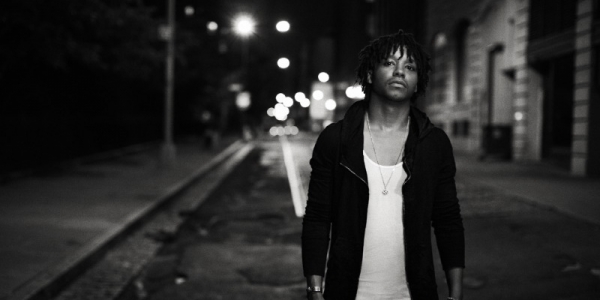The ‘backpack rap’ tag is one that Lupe has welcomed since he recorded the seminal American Terrorist for debut LP Food And Liquor. While probably best-known for feel-good tracks like 2007’s Superstar and the Modest Mouse-sampling Show Goes On, a powerful undercurrent of social commentary flows through his four-album discography. Even on last year’s Auto-tuned-to the-hilt and incredibly commercial Lasers, All Black Everything pondered an alternative reality in which civil rights activists wrote the Constitution and Bill O’Reilly read from The Quran. With the newly released Food And Liquor II, that anti-establishment rhetoric continues across Audubon Ballroom and the Pete Rock T.R.O.Y.-sampling Freedom Ain’t Free.
Reflecting on a role he’s assumed unintentionally, Lupe chuckles at the suggestion that he is the one of the game’s chief critical voices, dipping into the first of many lucid analogies. “I have to tell a story,” he offers, “and unfortunately to tell a story you need characters, and those characters are those characters. You can’t tell a story about nuns using prostitutes. You have to use nuns. And you can be Shakespearean about it and allude to nuns as being prostitutes but I don’t want to do that – I want to talk about nuns.” Lupe’s nuns, the targets of his activist streak, are a diverse bunch, but he doesn’t come across as uncomfortably hostile. Rather, he seems sage, wise beyond his 30 years. Although associated with the Occupy movement late last year, his criticisms are more directed and considered than that often frantic organisation, and his objectives more obviously utilitarian: “I just want to be around smart, educated people and not fucking jackals and wolverines and wild motherfuckers.”
That firebrand characterisation is ostensibly what delayed the release and influenced the distinct pop sensibilities of Lasers. Incisive social analysis doesn’t sell records. Whether worn down by years of label skirmishes or just resigned to commercial realities, Lupe is hyper-aware of the precarious duality he promotes – half mainstream hip hop, half lyrical and vocal critic – and he knows when to temper the latter. As immersed in the art world as he is, referencing Monet, Banksy and Jeff Koons, Lupe realises that his albums “are gallery shows. I have to sell paintings. The gallery has 50 paintings and they want to sell them all.” Unhurried in his deliberations, he obviously has a sincere appreciation for the realities of what he ultimately terms a “commercial pursuit.” Lupe hides nothing when it comes to acknowledging the industry powers that be. “I’m unapologetic about it as much as the label is unapologetic about it as much as the consumers are unapologetic about it.”
Even while bending to accommodate label pressure, Lupe, in line with more artists he counts off (Miles Davis, Picasso, James Baldwin), remains steadfast in his artistic ambition. Food And Liquor II boasts pitch black cover art: no artist, no title, no lyrics. “That’s a ballsy, artistically fucking weird thing to do,” its creator claims. Besides joking he’ll never have to sign the thing (unless someone produces a white-out pen), Lupe tells me that the last artist to do it was Metallica in 1991 – and even they had a coiled cobra in the bottom corner. The album evokes the sort of statement Nas made with controversial 2008 album, Untitled. Lupe corrects me. “His album wasn’t called Untitled. It was called Nigger. I would have probably left it as Nigger. You know like, ‘Nah, I ain’t changing shit.’”
And yet change is one of the only constants for Lupe in a career now spanning six years; a career kick-started by a guest appearance on Kanye West’s ‘Touch The Sky’. 2006’s Food And Liquor was a pastiche of contemporary hip hop. The next year’s The Cool was a concept executed to haunting effect. Lasers was Top 40 jams for the most part. And Part II? Taking in strings, Martin Luther King, a treatise on the word ‘bitch’ and conventional love songs, it’s just as schizoid as its counterparts. “If one boat starts leaking, I’m jumping on another boat,” Lupe explains. “And there’s nothing wrong with that. It’s not selling out or whatever people want to call it, because I can always come back… My boats haven’t sunk.” Intensely culturally literate, Lupe holds out that ultimately, he doesn’t talk cars, clothes and cash on his tracks because he believes them to be irrelevant. Making music for the everyman –“because I used to be that guy” – is what consumes him now. That and leaving a legacy rich enough that Fiasco will be mentioned in the years to come alongside the greats. “The same way Picasso painted a bunch of naked women – drunk and naked prostitutes who looked like fucking spaceships – but he also painted Massacre In Korea and Guernica,” he says, staring earnestly behind his specs. “There are no limitations; it’s all progression.”
BY DAVID SEIDLER







